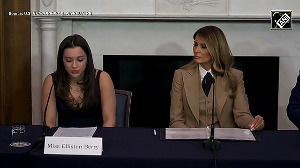| Summary |
|
|
|
Close-ended equity (diversified) |
|
CNX Midcap |
|
|
Rs 5,000 |
|
Rs 10 |
|
|
Nil |
|
4.00% (max.) * |
|
|
November 16, 2005 |
|
December 14, 2005 |
| *4.00% in Year 1; thereafter reduces every year to 0% in Year 5 | |||
| Investment Objective |
|
|
A closed end diversified equity fund that seeks to provide long term capital appreciation by investing in mid and small cap companies.* |
| Is this fund for you? |
|
|
For the uninitiated, Franklin India Smaller Companies Fund (FISCF) might seem like yet another addition to the ever-burgeoning list of mid cap funds. However what separates FISCF from the rest is its close-ended nature. The combination of a close-ended fund investing in mid/small cap stocks makes FISCF an interesting investment proposition. Small/mid sized companies are likely to be under-researched thereby providing an investment opportunity that is yet to be identified by the market. Often such companies offer higher growth potential and therefore an opportunity to benefit from higher than average returns in the long-term. On the flipside, since small/mid sized companies are often under researched, there is a fair chance that some 'reasons not to buy' might be overlooked while making an investment decision. The chance of manipulation or fraud in such companies is higher as risk control measures and corporate governance tend to be neglected. Similarly, the stocks could remain illiquid even at the end of the investment horizon which can be an unviable proposition for the fund manager. It is this unique nature of small/mid sized companies which makes mid cap funds high risk - high return investment propositions. Investors with a commensurate risk appetite can consider adding FISCF to their portfolios. From an asset allocation perspective, investors should consider allocating that part of their equity portfolio which has been reserved for long-term (considering the fund's close-ended nature) investments. Also investors would do well to appreciate that while a fund like FISCF can provide much-needed impetus to their portfolios, conventional diversified equity funds (like HDFC Top 200 and Sundaram Growth among others) should form the core of their portfolios. A Personalfn consultant can help you decide what is the right asset allocation for you. |
| Portfolio Strategy |
|
|
FISCF's close-ended nature could aid it in blunting the high risks associated with small/mid cap stocks. Stocks of the aforementioned nature can be very volatile over shorter time horizons; however they are capable of unlocking value and delivering attractive returns over longer time frames.
In FISCF, the fund manager can afford to adopt a 'buy and hold' strategy and make long-term calls without worrying about net asset value (NAV) movements or fund inflows/outflows in shorter time periods.
The fund defines a "smaller company" as any company which has a market capitalisation below that of the 100th stock in the S&P CNX 500 and may/may not be a company forming part of the S&P CNX 500.
Conversely, 'other company' has been defined as one with a market capitalisation equal to/greater than that of the 100th stock in the S&P CNX 500; the company may or may not form a part of the S&P CNX 500.
FISCF has been mandated to invest upto 10% of its corpus in unlisted stocks; however the fund house has indicated that it may refrain from doing so in ordinary circumstances. |
| Tax implication |
|
|
FISCF is a close-ended equity fund and will benefit from zero long-term capital gains tax (like any open-ended equity scheme).
However, the dividends declared by the fund will be subject to a dividend distribution tax; this does not hold true for the open-ended schemes. Investors contemplating investing in this scheme should therefore consider going in for the 'Growth' option. |
| Fund Manager Profile |
|
|
Satish Ramanathan, vice president, portfolio manager and senior research analyst, is the co-portfolio manager for Franklin Prima Fund. He is a BTech and an MBA. Ramanathan was associated with ICICI Securities and Sundaram Mutual among others before joining Franklin Templeton Mutual Fund. |
| Outlook |
|
|
Franklin India Prima Fund, one the country's leading mid cap funds comes from the Franklin Templeton stable. The fund has been in existence for more than a decade and has an exemplary track record to show for across time periods. To that extent, the fund house's credentials in handling a mid/small cap fund have been strongly established. Having said that, investors should take into account the following factors before investing in the fund. First, FISCF's high risk - high return investment proposition. Secondly, the growth option should be preferred considering the fund's long-term nature. Finally, the fund's close-ended nature may entail bearing a steep exit load on pre-mature encashment. Hence, investors must invest only that portion of their investible surplus which has been earmarked for a long-term investment. Is this the right scheme for you? Meet a Personalfn consultant today. Click here |






 © 2025
© 2025